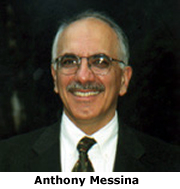
What appear to be growing anti-Muslim feelings in some European countries must be considered within the larger context of immigration in general in order to be fully understood, according to Anthony Messina, a University of Notre Dame political scientist who studies the politics of ethnicity, race and immigration in Western Europe.
Recent moves by countries historically welcoming to immigrants – such as last week’s announcement by the Dutch government that it would outlaw burqas – mark a shift to right-wing attitudes toward immigrants that is spreading across Europe.
“The core conflict within Europe is not between Muslims and Christians,” says Messina, “but rather between some Muslims and the state.”
Debates about the limits of tolerance and assimilation versus multiculturalism are playing into the hands of right-wing political parties in several countries, including France, Germany and Britain.
“To the extent that immigrant Muslim and so-called native populations are in tension, this mostly results from the clash between the devout religiosity of the former and the secularity of the latter,” Messina said.
The instability and insecurity caused by rising unemployment across Europe also produces a sense of loss of national identity that is fed by growing immigrant populations, regardless of ethnic background.
“The conflict arising from Muslim immigration has to be considered as an extension of the conflict over immigration in general, including non-Muslim immigration,” Messina said.
Contact: Anthony Messina is an associate professor of political science and author of “West Europe: Immigration and Immigrant Policy in the New Century.” He is available for interviews and can be contacted at: amessina@nd.edu or 574-631-3968.
Originally published by at newsinfo.nd.edu on November 22, 2006.